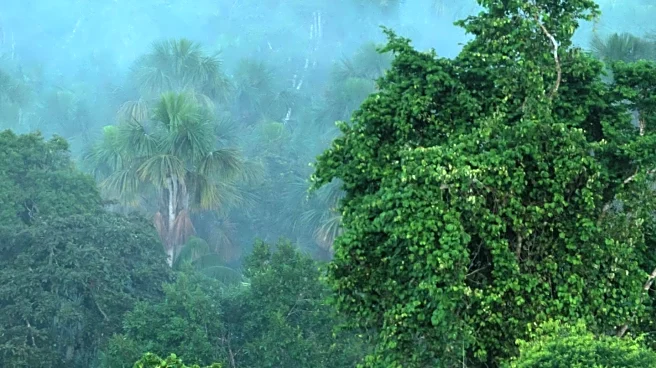What's Happening?
A new study has revealed that preserving Amazonian forests significantly reduces the risk of diseases for millions of people. The research, which analyzed two decades of data on diseases like malaria and respiratory infections, found that areas near healthy forests on Indigenous lands face lower health risks. The study emphasizes the importance of legal recognition of Indigenous territories in maintaining forest health, which in turn protects against diseases exacerbated by deforestation and wildfire smoke.
Why It's Important?
The findings underscore the critical role of forest conservation in public health, particularly in the Amazon region, which is experiencing increased deforestation and wildfires. Protecting forests not only mitigates climate change but also prevents health crises linked to air pollution and habitat disruption. This research supports the argument for stronger legal protections for Indigenous lands, which are effective in preserving forest cover and biodiversity, thereby enhancing ecosystem services and human health.
What's Next?
With the upcoming Cop30 UN climate summit in Brazil, the study could influence international policies on forest conservation and Indigenous rights. It calls for collaborative efforts to align forest protection with health and climate strategies across the Amazon biome. The potential policy shifts could lead to increased funding and support for Indigenous-led conservation initiatives, promoting sustainable land management practices.
Beyond the Headlines
The study highlights the interconnectedness of environmental and human health, advocating for a holistic approach to conservation that includes legal, cultural, and scientific perspectives. It also raises concerns about political developments in Bolivia, where proposed changes to land ownership laws could threaten Indigenous autonomy and forest conservation efforts.











